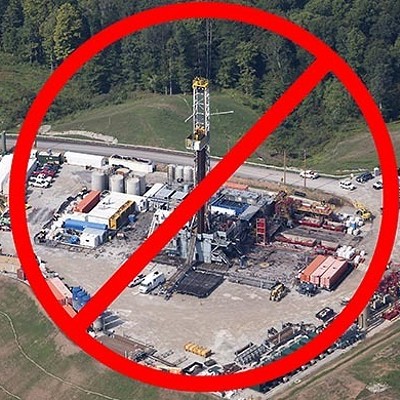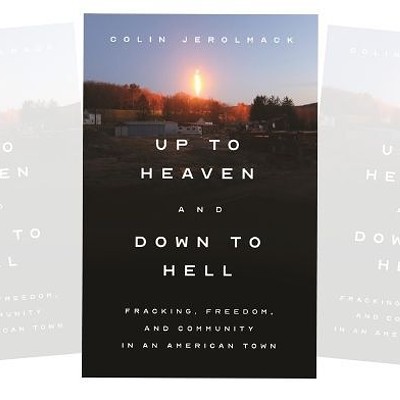Thursday, March 7, 2013
Public-Health Expert Warns of Poor Drilling Safeguards
Dr. Bernard Goldstein isn’t opposed to drilling for shale gas. But Goldstein, a physician and professor emeritus in Pitt’s Graduate School of Public Health, warns that in Pennsylvania, the law governing disclosure of chemicals used in hydraulic fracturing fails to protect public health. And he says that the drilling industry is “managing” the story of gas extraction to divert our attention from fracking’s real risks.
Goldstein spoke Feb. 28 at a Pitt-sponsored symposium on Act 13, the controversial 2012 state law regulating gas extraction, including disclosure of the chemicals. Critics contend the law is effectively a gag order on physicians: It allows companies to withhold the names of some fracking chemicals as trade secrets; limits when the identities of those chemicals can be disclosed to physicians; and requires doctors who need that information to sign confidentiality agreements preventing them from sharing it even with their patients.
Nearly half of the day’s 15 speakers were attorneys for firms that represent the energy industry. They generally spoke in support of Act 13, arguing that fracking is safe and that keeping trade secrets is a necessity for industry. Several presenters showed slides with different versions of a pie chart indicating that fracking fluid is more than 90 percent water, and contains 1 percent or less of added chemicals. Several also claimed that there is no evidence that hydrofracturing has contaminated groundwater.
Goldstein, a former GSPH dean, attacked gas-industry spin that defines hydrofracturing not as the whole drilling process, but narrowly, as the release of fracking fluid into shale formations under high pressure a mile underground. Such a focus fails to account, for instance, for “flowback water,” the toxic liquid that returns to the surface as part of the drilling process. Flowback fluid contains fracking chemicals plus chemicals picked up in the shale formation itself. And these naturally occurring materials are “where the action is in Pennsylvania in terms of public-health risks,” said Goldstein. “This water has lots of bad things in it.”
Act 13 explicitly exempts drillers from disclosing “chemicals that were not intentionally added to” fracking fluid and “chemicals that occur incidentally or are otherwise unintentionally present in trace amounts, may be the incidental result of a chemical reaction or chemical process or may be constituents of naturally occurring materials.”
The “chemical reaction” part matters especially, Goldstein said, because the high temperatures in the shale layer (up to 480 degrees Fahrenheit) are conducive to chemical reactions.
“This was really a tremendous advantage [for drillers] not to have to tell people” about chemicals not intentionally added, he said.
The symposium, “Act 13 in 3-D: Drilling, Doctors, and Disclosure,” was organized by University of Pittsburgh School of Law students through the Pittsburgh Journal of Environmental & Public Health Law.
Goldstein was one of several Act 13 critics who said the law inhibits doctors whose patients might have been exposed to toxic fracking chemicals. Barry R. Furrow, director of the health-law program at Drexel University’s law school, noted that Act 13 allows for the disclosure of trade-secret chemicals for the treatment only of individual patients, not to protect the patient’s family or community from additional exposure.
Furrow added that under Act 13, doctors might second-guess themselves because of the implied threat of legal action from the holders of trade secrets: “Do you want to go against Halliburton?” he asked, referring to a key supplier of fracking fluids.
“Act 13 needs to be rewritten,” said Furrow.
While the current law doesn’t require industry to justify keeping a particular chemical secret, Goldstein said he thinks industry should have the burden of proof.
“I thought we had gotten somewhere with how we approach these kind of environmental questions,” said Goldstein, whose career includes an stint as an administrative appointee in the U.S. EPA under President Reagan.
The law surrounding shale gas and public health, he says, “has almost been a form of environmental recidivism.”
He added that Act 13 was written and passed with no input from health experts. “It’s really easy to ignore public health, and that’s exactly what’s happening here.”
Tags: Fracking , Dr. Bernard Goldstein , Pittsburgh Journal of Environmental & Public Health Law , Act 13













